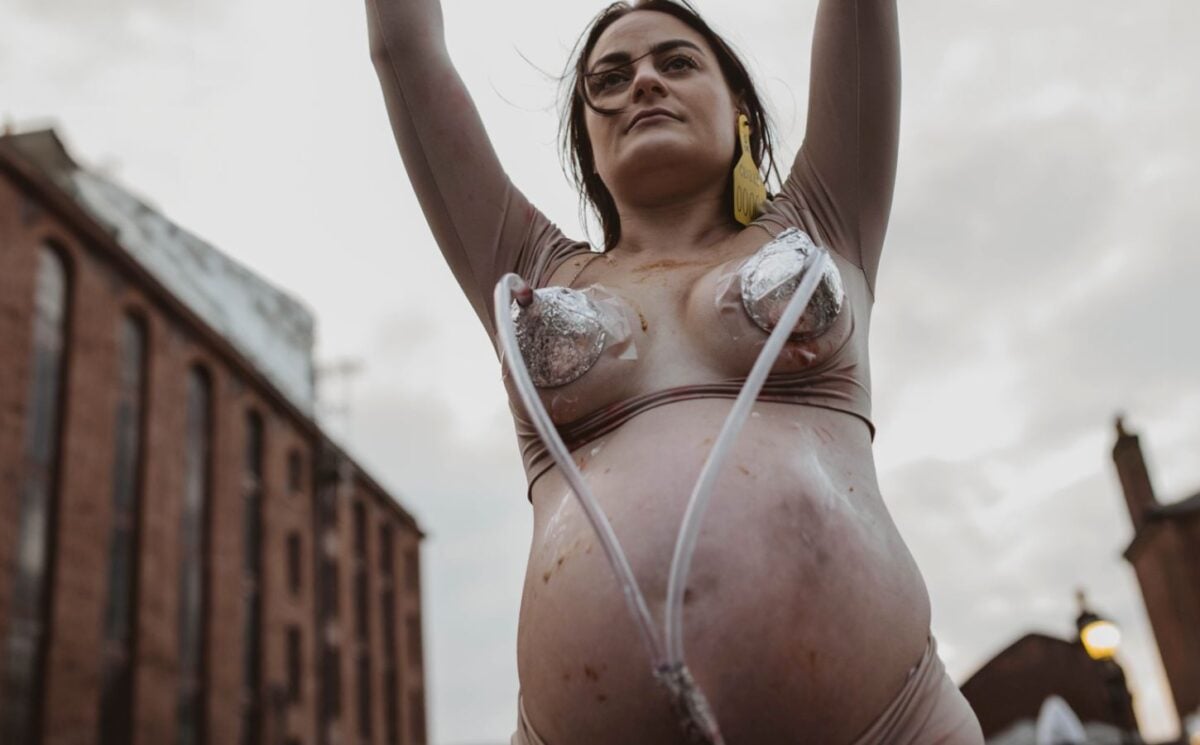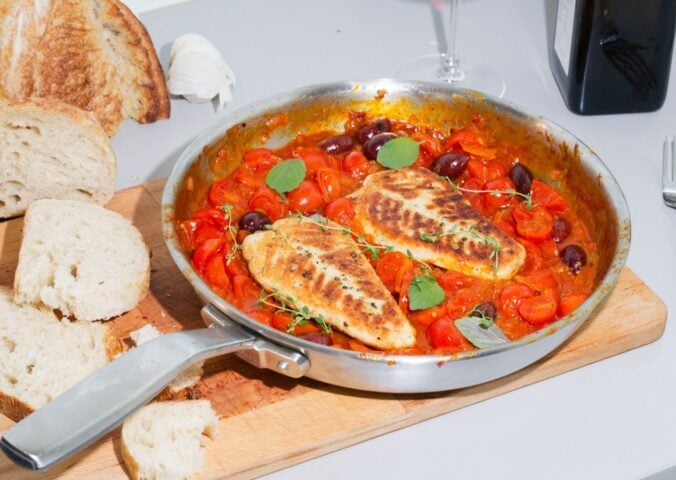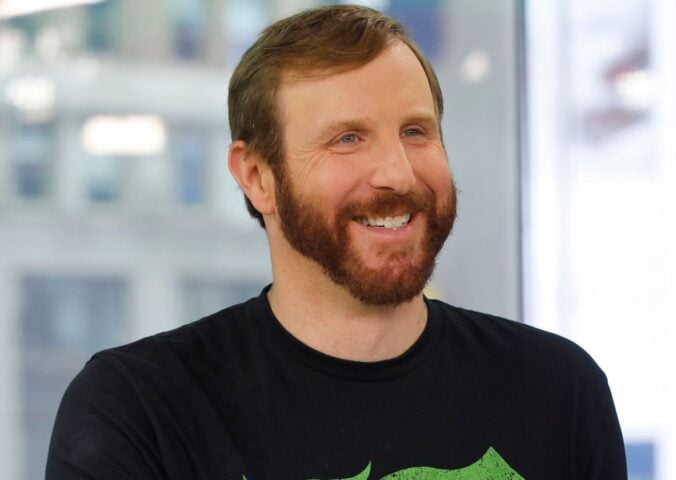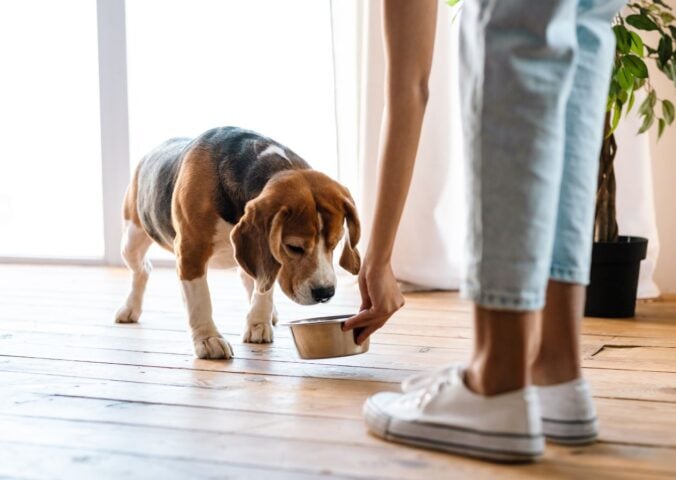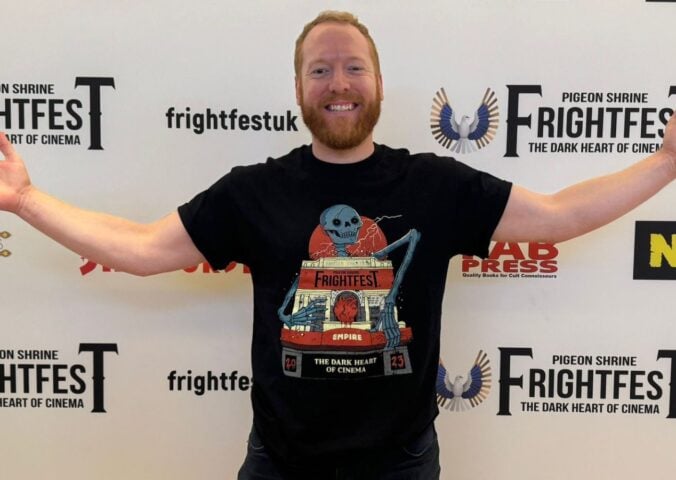Last Saturday (December 2), a group of vegan advocates took part in an anti-dairy art installation outside the Tate Liverpool, a famous art gallery and museum.
Three women were “milked” in their underwear in close-to-freezing temperatures while holding signs reading “milk is not humane.” The installation came just a few weeks after a similar demonstration in London. It was organized by Stephanie Lane, the founder of vegan organization SPECIESISM.WTF. One of the women taking part, 34-year-old Ashleigh Tasker, a hairdresser from York, was nine months pregnant with her first baby.
“Seeing myself and two other brave women, on a cold day in Liverpool, shackled, beaten, bloody and filthy, one of whom is pregnant, can hopefully make an audience feel shocked, confused, intrigued and hopefully disgusted,” she tells Plant Based News (PBN). “Once they make the connection to what they’re seeing and the dairy industry I want them to feel enlightened and changed. My pregnancy, especially the visual aspect of my nine month round belly, has the power to help bring about this change.”
The dairy industry harms mothers
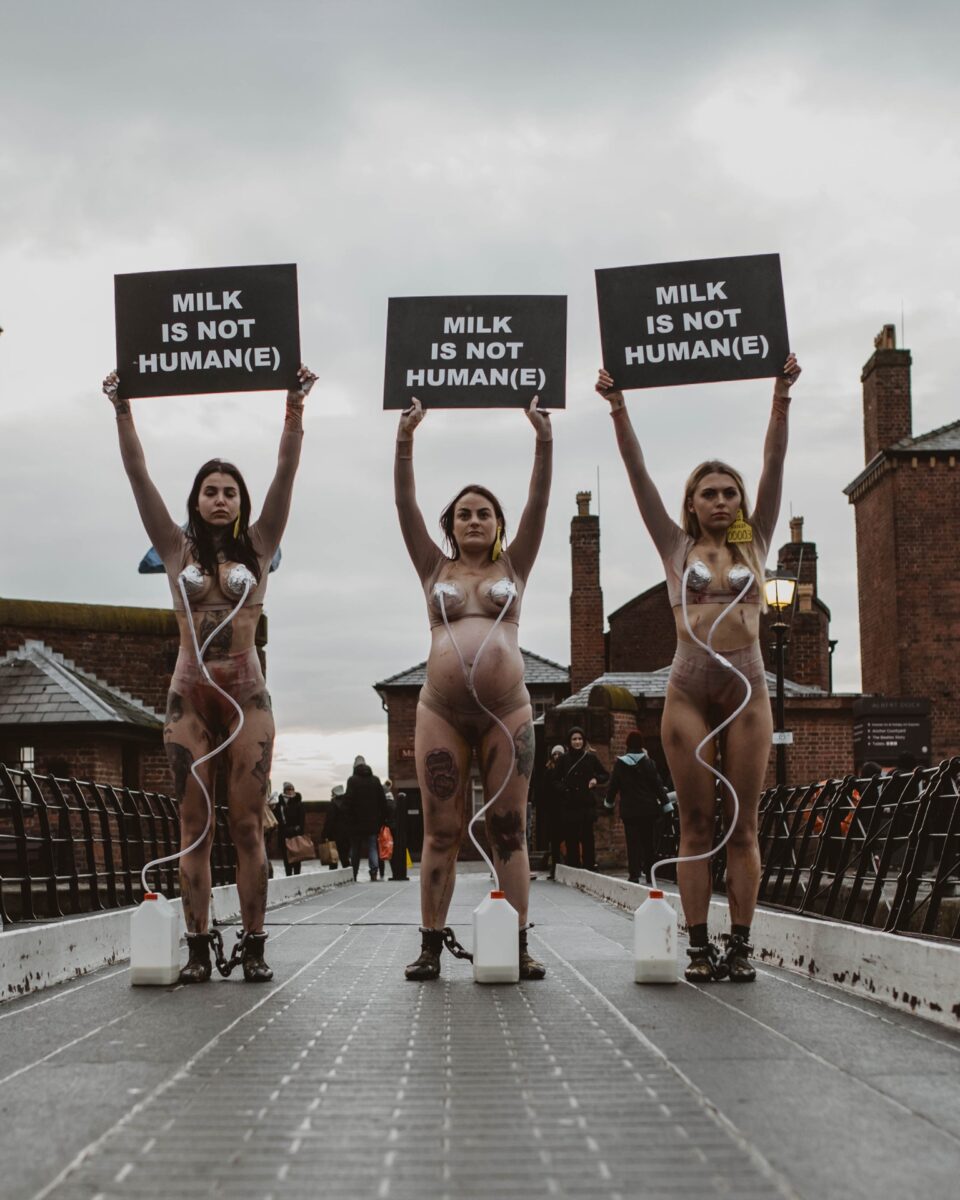
While the significance of her presence may not be apparent to some, the dairy industry makes its money through exploiting the female reproductive system. “Dairy cows” are forcibly impregnated once a year via artificial insemination, and each time suffer the trauma of having their baby taken from them so humans can take their milk.
“I felt vulnerable yet empowered and kept my motivation at the forefront of my mind the entire time – to be a voice for the voiceless, for the mothers whose bodies aren’t their own and whose children are stolen and killed.”
Dairy is often viewed through rose tinted glasses in the UK. Society, storybooks, and the dairy industry itself all perpetuate the idea that cows produce milk because they’re cows, not because they’re mothers, and that friendly farmers are doing them a favor by relieving them of it. Many people therefore believe dairy to be a more ethical product than meat, and vegetarianism to be a kind dietary choice.
“I remember once saying to one of my colleagues, who is vegan, that I’d made the decision to stop eating meat but didn’t think I could be vegan as I love cows’ milk too much,” says Tasker. “I have now been vegan for four years. After doing more research into factory farming, seeing documentaries such as Dominion, my eyes were opened to the atrocities dairy cows are subjected to every day.”
The fate of “dairy cows”
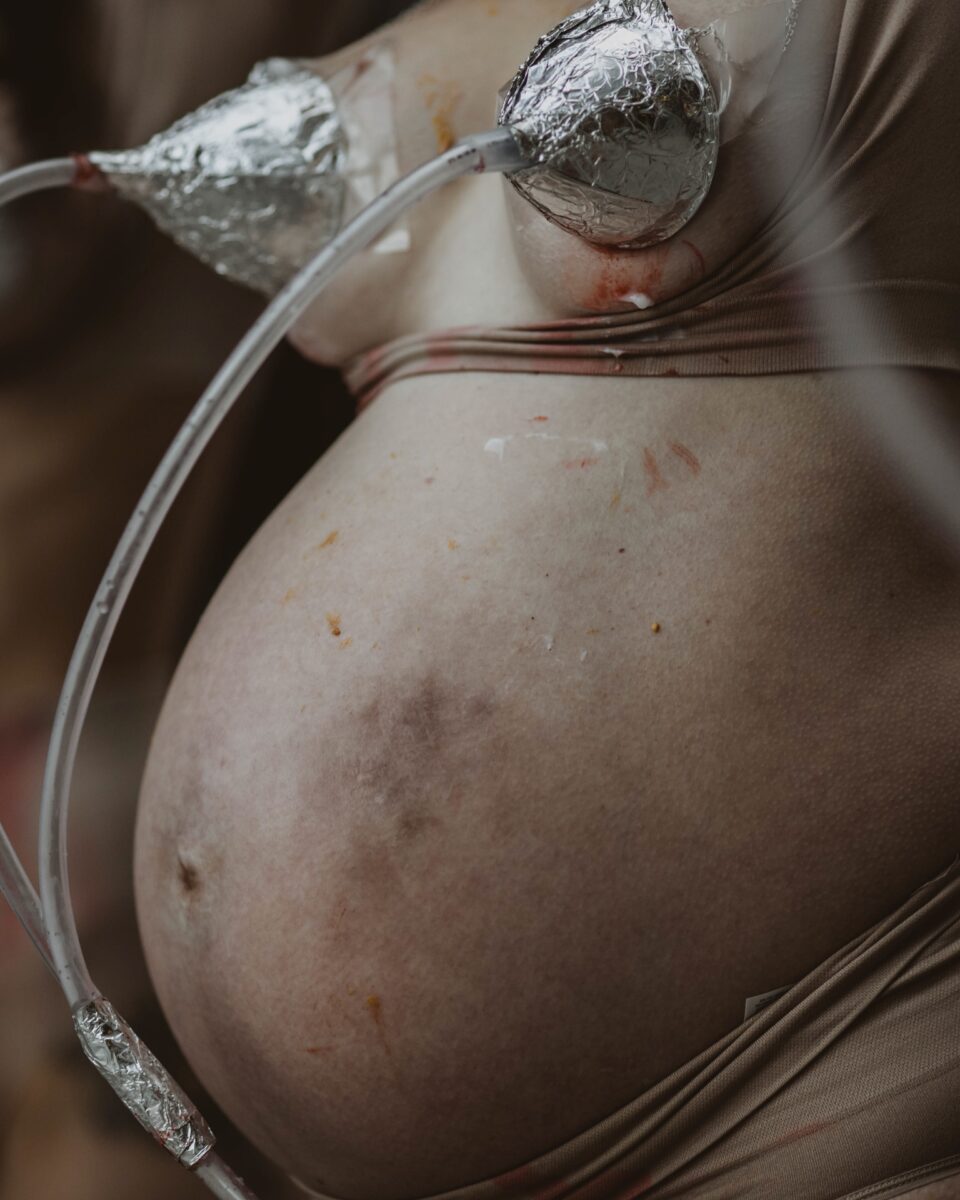
Cows used in the dairy industry have been selectively bred to produce around 4.5x the amount of milk they naturally would. This takes a huge toll on their bodies, and they often suffer from mastitis (a painful udder inflammation) as a result.
Lameness is also very common on dairy farms. It’s thought that around 30 percent of cows suffer from it. Lameness refers to a reduced ability to use limbs. Cows may develop the condition because of injury, ineffective hoof trimming, or infectious disease. Most commonly, though, it arises because they are forced to stand on hard surfaces for long periods while being milked.
To prevent them from falling over, cows often have their legs shackled together. Workers have been regularly documented hitting and beating cows who are struggling to walk. When cows become too injured or stop producing enough milk, they are sent to the slaughterhouse.
A recent investigation into a Red Tractor-approved UK dairy farm found dead cows “eaten to the bone” and a catalogue of other “horrific” abuses. In footage recorded by animal advocacy organization Viva!, cows were subjected to “extreme” rough handling, dead animals were left outside, and calves were taken from their mothers less than 12 hours after being born. In one piece of footage, a cow was hit more than 55 times in seven minutes.
Raising awareness of dairy through art
This is the first time Tasker has taken part in this installation, but it was previously done outside the Tate in London in October. “My husband, Calvin, had the privilege of photographing one of the installations at the Tate in London and the art he captured was so striking and thought provoking,” she says. “I imagined how Stephanie could use my pregnancy in her art to further reflect the dairy industry’s treatment of mothers.”
“Our aim is to accelerate the aims of the animal rights movement by leveraging the wide acceptance of the arts by the masses, and instill the critical animal rights messaging, normalising a world free of nonhuman animal exploitation,” Lane tells PBN. “The arts have been instrumental to change throughout history in all social justice movements, and never before has it been more critical to use this incredibly powerful vessel for change to educate the public on speciesism and the impact our choices we humans have on the lives of trillions of nonhuman animals per year globally.”
The other women who took part in the latest installation were Liverpool-based activist Rayner Croft and actor Antonia Whillans, who previously starred in a vegan advert from Viva!. Activist Susan Clarke played the role of a “farmer” and used a megaphone to inform passersby about the reality of the industry. “This is Veganism through Art. It is inspirational,” Clarke says. “The art world is open minded and ready to consider the meaning of a piece of art and what the artist is trying to portray, and because of this it is incredibly powerful and effective in reaching people with animal rights messaging.’ “
As well as the installations, SPECIESISM.WTF organizes anti-dairy billboards depicting similar images of women being milked. The next one is set to be erected in Liverpool on December 18.
Find out how you can support the campaigns on the SPECIESISM.WTF here.
